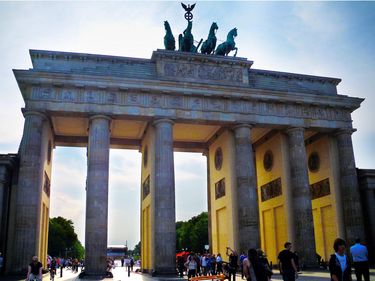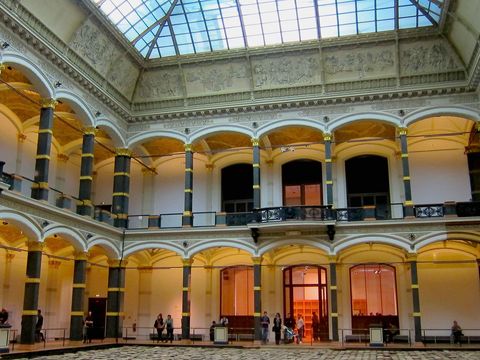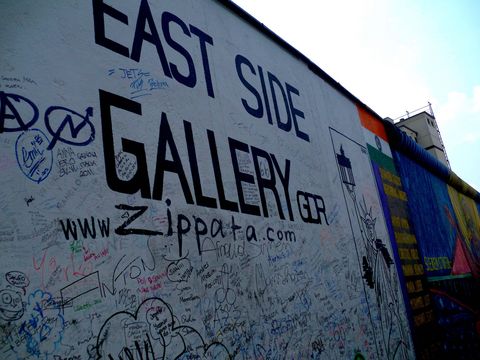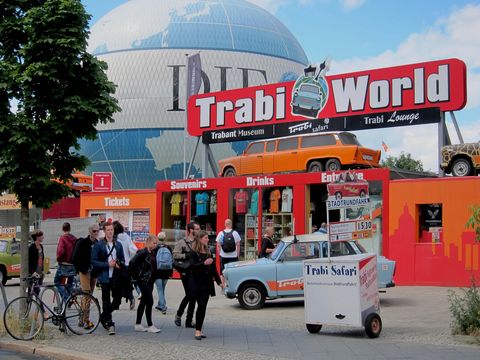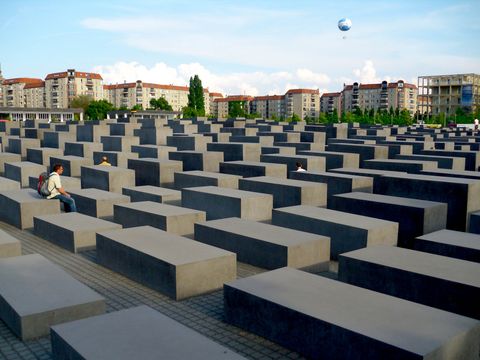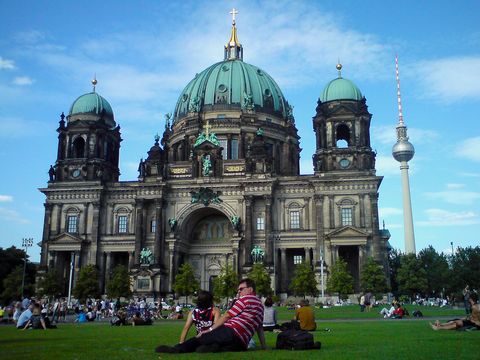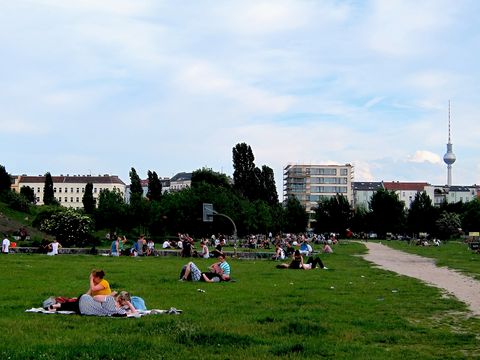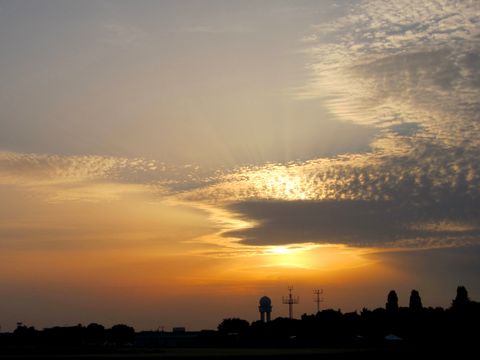Thanks to its multicultural and creative flair and countless recreational opportunities, Berlin is extremely attractive to students. Indeed, Germany’s capital possesses a very special atmosphere. Those who have come to this bustling city find it difficult to leave again.
Facts
3,669,491 Inhabitants ¹
185,123 Students ²
38 Higher education institutions ²
WELCOME TO BERLIN
Berlin is Germany’s capital city. And not only is it the political centre of the country, it’s also the largest city with more than 3.5 million inhabitants. This metropolis never sleeps. Berlin is home to internationally renowned higher education institutions, large corporations and start-up companies. Berlin is also known for its multiculturalism, exciting nightlife and vibrant art scene. Not to mention the world-class theatres and museums. Simply put, Berlin is the place to be. It has made a name for itself the world over and is more en vogue than ever before. Germany’s capital has so many different facets, it’s difficult to sum it up in a nutshell.
With more than 70 research facilities and about 40 higher education institutions, Berlin offers an extremely broad range of academic and research opportunities. More than 45,000 people from around the world study in the city.
Berlin is comprised of twelve districts. Berliners often call them their “Kiez”, meaning the small area inside a city quarter, the immediate vicinity. The Neukölln district, for example, is about as large as the entire city of .
Berlin is very green. Numerous parks, gardens and lakes are close by and distinctly influence the look of the city. The flea markets are popular and the list of activities is endless. Many people are enchanted by the city and its particular rhythm. The interaction of various cultures is enriching and strongly shapes the city’s unique character. Berlin is also a presentation venue for young artists. Approximately 20 percent of the city’s inhabitants are foreigners.
Interview
KRISHA FROM NEPAL
LIVING IN BERLIN
You will find students throughout the entire city. Some choose to live near their higher education institutions, while others consciously decide not to. The availability of student accommodation is as variable as the city itself. Rental prices have increased rapidly in recent years. Certain districts like Kreuzberg and Neukölln have become more and more popular. Many students tend to live in districts where fellow students also live. Much of life takes place in the immediate vicinity of one’s flat. In this regard, Berlin is not your typical student town. If the enormous size of the city makes you feel overwhelmed, the higher education institutions offer advising programmes for international students which can help you get acclimated faster.
Despite its size, you’ll find your way around Berlin quickly because its infrastructure is rather straightforward. Public transportation is the best way to get from place to place. You can travel everywhere within city limits for free with your semester ticket. In fact, the Berlin Public Transportation Authority clocks up so many kilometres that its trains could travel about 16 times around the earth – every day! If you happen to live far away from your higher education institution, you might have to take an hour-long train ride to get to classes.
Berlin is a green city. There are countless parks, each with its own unique atmosphere. The , for example, is famous for its flea market and karaoke events. If you need to escape the hectic pace of life in Berlin, you don’t have to go far. There are R&R areas at numerous swimming lakes in Berlin.
Operas, concerts, plays, varieté shows, poetry slams, readings, street festivals – there are so many things to do, which this can verify. There are many days when museums offer free admission or cinemas offer concession rates. As a student, you’re almost always eligible for concession rates on tickets. Some movie theatres, which also show independent films, offer lower-priced subscription rates.
When deciding where to go out at night, you’ll be faced with countless possibilities. Life in Berlin is fast-paced, and so is its nightlife. What all your friends were raving about last year might be yesterday’s news today. Beach bars, festivals, open air concerts (even in the winter) are always popular. There’s a club in Berlin for every possible taste in music. However, Berlin is actually well-known for its electronic music scene.
As far as food is concerned, you can find everything your taste buds desire and your budget can afford. Two great places to go are for example Markthalle Neun and the Thai Meadow in the Preussenpark. If you’re looking for fresh vegetables and spices, go to the weekly markets. Berliners like meeting on Sundays for brunch at one of the many cafés in town. There are affordable places to eat in almost every street – and you can order everything to go. Curried sausages and doner kebabs are two typical and well-loved specialities. If you want some variety and don’t have very much to spend, the student dining halls are a good alternative.
#Oldtown #MythosBielefeldDoesNotExist #ManufactureOfLinen
